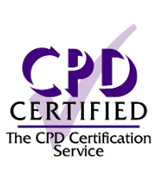 This advanced course follows on from the introductory Level 1 course and covers more advanced topics. The Level 1 course is aimed at non-statisticians working in the pharmaceutical industry and is structured to enable the understanding of statistical concepts and methods used in the design and analysis of clinical studies. The Level 2 course is aimed at the same target audience and has the same primary objective but covers a broader and more in-depth range of topics.
This advanced course follows on from the introductory Level 1 course and covers more advanced topics. The Level 1 course is aimed at non-statisticians working in the pharmaceutical industry and is structured to enable the understanding of statistical concepts and methods used in the design and analysis of clinical studies. The Level 2 course is aimed at the same target audience and has the same primary objective but covers a broader and more in-depth range of topics.
The advanced course is divided into 14 sections and development follows a logical step-by-step structure. It is assumed that participants will already have completed Level 1. Each of the 14 sections concludes with a workshop-exercise to assess understanding of the material covered and a 70% mark (based on at most 2 attempts) is required on each of those exercises to receive a certificate of completion for the course.
The course topics subdivided by section are detailed below.
1. Stratifying the Analysis
- Stratified Analysis for Continuous Endpoints
- Cochran-Mantel-Haenszel Test for Binary Endpoints
- Stratified Logrank Test for Time-to-Event Endpoints
- Limitations and Extensions
2. Modelling Dependence
- Simple Linear Regression
- Multiple Linear Regression
- Logistic Regression
- Proportional Hazards Regression
- Negative Binomial Regression
- Univariate versus Multivariate
- Correlation
3. Modelling for Treatment Comparisons View Demo
- Analysis of Covariance (ANCOVA)
- Regression Towards the Mean
- Least Squares Mean
- Treatment x Covariate Interactions
- Prognostic versus Predictive
- Modelling
- Logistic Regression
- Negative Binomial Regression
- Cox Proportional Hazards Model
4. Missing Data and Imputation
- Avoiding Missing Data
- Classifying Missing Data
- Missing Completely at Random
- Missing at Random
- Missing Not at Random
- Multiple Imputation
- Pattern Mixture Models
- MMRM for Repeated Measures
- Estimands:
- What are they?
- Why are they interesting?
- Estimand Strategies
- Treatment Policy
- Hypothetical
- Composite
- Principal Stratum
- While On-Treatment
- Case Study in Diabetes
6. Multiplicity 2
- Recap Level 1, Section 8
- Golden Rule
- Reporting p-Values
- Combining Hierarchical and α-Splitting Methodologies
- Closed Testing with Case Studies
- Revisiting Workshop-Exercise Level 1, Section 8
- Exploratory Analyses
- Revisiting Interim Analyses
7. Bayesian Statistics
- Frequentist versus Bayesian Methodologies
- Bayes Rule
- Prior and Posterior Distributions
- Case Study – Ovarian Cancer
- Practical Applications
- Objectives of Meta-Analysis
- General Aspects of Conduct
- Fixed and Random Effects
- Meta-Analysis versus Pooling
- Assessing Heterogeneity
- Publication Bias and Funnel Plots
9. Network Meta-Analysis
- Network Meta-Analysis (NMA) for Indirect Comparisons
- Case Study – Psoriasis
- Network Geometry
- Bayesian Rank Analysis
- Surface Under the Cumulative Ranking (SUCRA) Curve
- Indirect Comparisons and Effect Modifiers
- NMA versus Meta-Analysis
10. Survival Data 2
- Recap, Level 1, Section 9
- Proportional Hazards Assumption
- Restricted Mean Survival Time
- Accounting for Cross-Over
- Cumulative Incidence Functions
11. Observational Studies and Propensity Scoring
- Observational Studies and Forms of Bias
- Regulatory Acceptance
- Real-World Evidence
- Selection Bias in Observational Studies
- Propensity Score Matching
- Case Study
- Stratification and Inverse Propensity Score Weighting
12. Statistical Aspects of Safety Data
- Primary Endpoint Safety
- Safety Data at the Trial level
- Incidence Rates
- Tables and Graphs for Reporting
- Data and Safety Monitoring Boards (DSMBs)
- Signal Detection
- Proportional Reporting Ratios
- Bayesian Neural Networks
13. Equivalence and Non-Inferiority 2
- Recap, Level 1, Section 10
- p-Values for Non-Inferiority and Equivalence
- Assay Sensitivity
- Sample Size – Non-Inferiority
- Analysis Sets
- Bioequivalence
- Biosimilarity
- Case Study– Neovascular AMD
14. Adaptive Designs
- Definition of Adaptive Designs
- Restricted and Flexible Adaptations
- Type I Error Control using a Combination Test
- Operational Bias
- Increasing Sample Size
- Seamless Phase I/Phase II
- Changing the Primary Endpoint
- Enrichment
Learning Objectives:
The primary course objective is to enable participants to better understand statistical methodologies used in the design and analysis of clinical studies undertaken within the regulatory environment.
This increased understanding will help participants:
- To communicate more effectively with clinical and non-clinical colleagues in relation to statistical methods and analysis,
- To read, listen and follow statistical arguments used in publications and presentations,
- To interpret the results of the statistical analysis of data more effectively,
- To be more effective in responding to statistical discussions and questions arising in interactions with regulatory authorities
Who Should Enroll:
Pharmaceutical physicians, investigators, clinical research scientists, medical science liaison (MSL), medical writers, regulatory personnel, statistical programmers and senior data managers.
The structure and content of this course has been built around a five-day Postgraduate Medical Specialty Training Programme, which is organized and run by RK Statistics in the UK, in association with the Faculty of Pharmaceutical Medicine. The topics covered are consistent with the topics within that programme.
'Access to the 2nd edition of Richard kay's book 'Statistical Thinking for Non-Statisticians in Drug Regulation' in eBook format will be included as part of the Advanced level package at no extra cost. The book published by Wiley is widely recognised as a leading text in the field.'